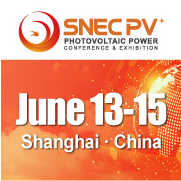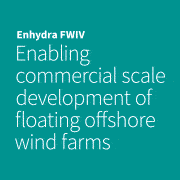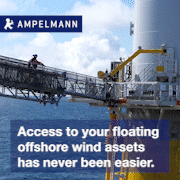- First order for Norfolk’s “gamechanger” offshore wind turbine toilets ready for installation in Scotland.
- All turbines on Vattenfall’s Aberdeen Offshore Wind Farm to be the first in the world to be fitted next week with an in-tower loo invented and made near Norwich.
- “Hygiene and welfare are not optional extras offshore. No other workplaces have no welfare facilities on site,” inventor said.
- Order creates one temporary Norfolk job and work for three Great Yarmouth companies.
The first order of Norfolk’s “gamechanger” toilets for offshore wind turbines is complete and ready for the 500-mile journey to Scotland for installation.
Fabrication of in-tower loos for Swedish energy group Vattenfall’s Aberdeen Offshore Wind Farm finished this week at Pegasus Welfare Solutions’ (PWS) base at Lenwade, near Norwich and are lined up ready for the roadtrip up north.
Inventor and PWS managing director Dan Greeves is campaigning for loos on turbines to become standard across the fast-growing offshore wind industry, where not one offshore turbine is fitted with a toilet.
“My mission here in Norfolk is to make hygiene and welfare not optional extras and nice to haves, but essential for the workforce. You wouldn’t turn up at any other workplace and accept no welfare facilities on site, so why should offshore wind workers?
“Vattenfall, as a responsible developer that cares about its workforce, is the first to invest in our units on every turbine on its Aberdeen Offshore Wind Farm, that is renowned for its innovations and industry firsts.
“And I’m confident that our made-in-Norfolk product will be installed on their Norfolk projects, Norfolk Vanguard and Norfolk Boreas, and have been involved with the team working in Norfolk for some time.”
Dan, who worked offshore for more than a decade, took on an extra employee to fabricate the units at PWS’ base near Norwich, and turned to Great Yarmouth company, Seabed Scour Control Systems, to supply bespoke rigging to lift the units.
MDF Transport, based at Gapton Hall, Great Yarmouth, was contracted to take the units to Aberdeen. Kirklands Equipment Supply, of Great Yarmouth, handmade waterproof PVC carry bags for the cassettes for each turbine, certified for offshore use at height by the Great Yarmouth base of Certex.
Stag Plant Hire, based in Peterhead, Aberdeen will service the units.
Dan said: “It’s an added bonus that we were able to create employment for the length of the job and work for local companies and illustrates the trickle-down effect in the supply chain.”
Dr Catrin Ellis Jones, stakeholder engagement manager for Vattenfall’s Norfolk Offshore Wind Farm projects, said:
“Dan’s product is a perfect example of innovation and how it happens. Dan’s experience, built up over decades working with the Oil and Gas and maritime industries has been applied to issues challenging the “new kid on the block” offshore wind sector and a fantastic product is born. Dan drew on three other, really different types of Norfolk company to deliver the final technical solution.”
“It’s especially exciting because his invention may well become a great East Anglian export, eventually improving working conditions, safety and efficiency at wind farms all over the world.”
“Dan shows us that there are opportunities for the whole county; and as the sector is still new there is huge potential for enterprise, including for hi-tech, and hi-value-added products and services.”
Vattenfall had been getting to know many “wonderful Norfolk companies in the last six years, she said.
“As a result, we have awarded large contracts, for servicing our fleet of operating wind farms across the UK, Europe and Scandinavia, to established outfits like James Fisher Marine Services of Lowestoft, and Worley.
“We’ve also worked with smaller, very agile and clever local businesses too, who are just starting out in the sector. That’s why we are so excited to be working here and becoming part of the green tech renewal of the region over the coming years and decades.”
On offshore turbines, technicians often take 45 minutes to answer a call of nature, having to climb down 200m ladders and leaving the turbine to embark on to a crew transfer vessel or SOV (service operation vessel), sometimes having to call the boat back to the turbine in rough seas when they needed it.
The patented loos offer developers more than a convenience – they save time off the job therefore boosting shift productivity and minimise risks; the greatest safety risk in offshore turbine working is transfers from turbine to vessel.
Two technicians will make the installations next week on every turbine.
“These units are a win-win for developers. On top of the safety benefits, the time saved keeping technicians on the assets make the units cost neutral soon after installation.
Patrick Thorpe, managing director of Kirklands Equipment Supply, suppliers of equipment to offshore and other businesses since the 1970s, said he hoped the first carry bag order was the start of a new business stream for his team as more developers installed the units.
“The bags needed seatbelt webbing for extra strength as they are for offshore use and need certification, which we got from Certex, another company in Great Yarmouth. We hope this small order will lead to something bigger.”
The design of the cubicle was finalised at the end of last year in collaboration with the Offshore Renewable Energy (ORE) Catapult, which also plans to trial the facilities at its 7MW Levenmouth demonstration turbine off the Fife coast later this year.
About Pegasus Welfare Solutions
After more than a decade working offshore, engineer Dan Greeves invented and patented a modular welfare unit manufactured in lightweight marine grade aluminium that could be craned on to turbines’ transition pieces. The company, Pegasus Welfare Solutions (PWS) won contracts with a few offshore wind developers. identified that, although offshore wind farm construction projects complied with all of Construction, Design and Manufacturing 2015 regulations onshore, they were unable to offer the same level of welfare offshore.
PWS designed and patented a hygiene/welfare system that met the regulations criteria:
- A certified, integrated welfare unit capable of being lifted on/off an offshore turbine
• A leak-proof tank during lifting and when static
• Waste management tasks for disposal and cleaning undertaken by a registered body.
PWS’ business model is to supply against an industry need to improve, and deliver welfare requirements specified in RAMS (Risk and Method Statement) to improve day-to-day operations during construction, commissioning and operations and management through:
• Safety
• Productivity
• Diversity
The PWS Welfare and Hygiene fleet also includes remote and secure hand washing stations and portable workspace, capable of being on site without a crane.
In February 2020, Dan was working in the Far East when Covid hit and decided to resign from his role as head of international business development for James Fisher Marine Services to pursue the business during lockdown. He quickly won three contracts in six weeks for his products with three USPs – Safety, Productivity and Diversity.
At the same time, he was developing the in-tower unit for deliver the industry with a bespoke patented in-turbine toilet to deliver equivalent offshore facilities to onshore.
“We think of innovation as cutting-edge engineering coming out of a lab. But sometimes innovation is all about developing appropriate technologies to make something simple yet powerful to solve pressing issues that stand in the way of progress,” Dan said.
In development, PWS worked with ORE Catapult. It also received a Business Resilience and Recovery Scheme grant from New Anglia Local Enterprise Partnership, which supported its move to a new industrial unit from its rented barn space base in August and employ new staff, including a new energy engineering graduate.
In November 2020, the PWS in-tower system, the world’s first patented (GB2016641.9) retro fit toilet cubicle that can be installed in a wind turbine tower, was launched.
The In-Tower unit is made of lightweight materials that facilitate easy installation. The In-Tower unit has its own in-built certified lifting frame (LOLER) and is tested under DNV standards. Each unit comes with its own rigging and certification.
All PWS units are manufactured at PWS’ Norfolk base in Lenwade.




























